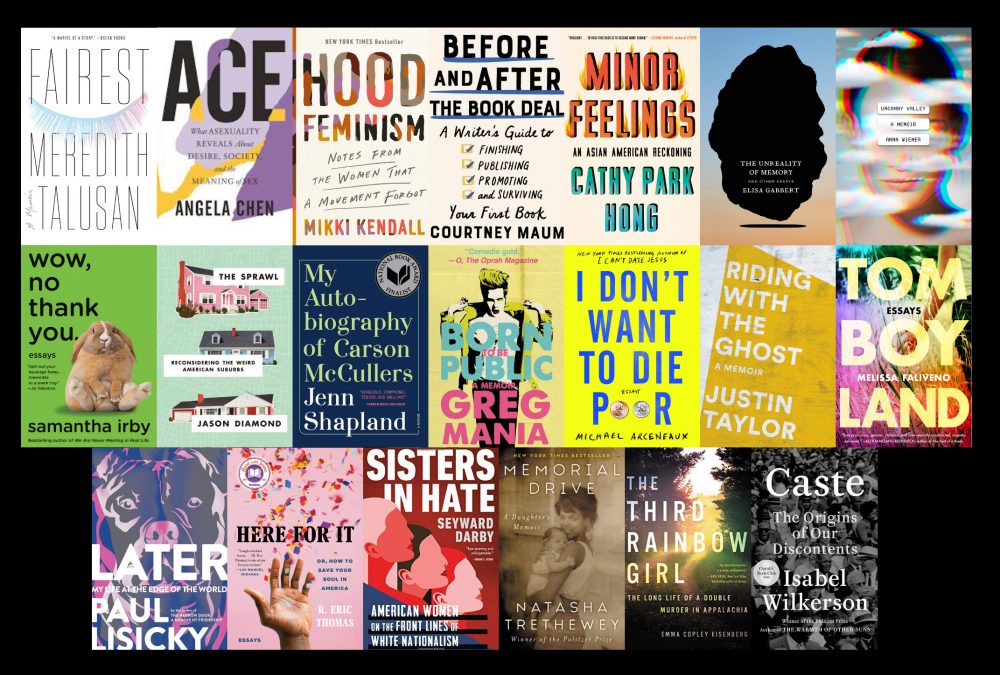essays
Why Do We Find It Suspicious When Women Are in Crisis?
My reaction to the end of HBO series "The Undoing" made me realize how harshly we judge women in pain

(This essay contains almost immediate spoilers for The Undoing, as well as discussion of birth trauma)
At the end of HBO’s prestige drama The Undoing, we watch, in a flashback, the murder that has been the central driving mystery of the show. We find out the perpetrator by seeing that person commit the crime. And yet, even as I watched this scene, I couldn’t believe it. I had immediately ascribed guilt to one of the women, and I could not believe that the murderer was a man.
The Undoing tells the story of a white, middle-aged, married couple, Grace and Jonathan Fraser (Nicole Kidman and Hugh Grant), affluent New York doctors, and their lovely, violin-playing son who goes to an expensive private school. Elena Alves (Matilda De Angelis) is a younger, poorer woman, presented as non-specifically nonwhite in the vague manner of TV, whose son attends the same private school on scholarship. Elena is found bludgeoned to death after a school fundraiser. At the same time, Jonathan mysteriously disappears. It’s likely that I should have suspected Jonathan from the beginning—everyone in the show did. But I immediately pinned the crime on Grace.
Before her death, Elena had seemed to be mystically or sexually drawn to Grace; we see her gazing at Grace while she breastfeeds, or standing naked before Grace in a gym locker room. Grace finds her crying in the bathroom at the school fundraiser, and Elena kisses Grace on the mouth as a thank you for her kindness. But in fact, we discover upon Jonathan’s return, Elena was having an affair with Jonathan. Her son was his cancer patient, and they became involved while Jonathan was saving the boy’s life. He did sleep with her, he confesses, but he did not kill her.
We are meant to wonder if she’s imagining or remembering. We’re meant to wonder if she knows the difference.
As viewers, we are closest to Grace, able to see the scenes that crowd her head: images of her husband and Elena together, images of Elena painting her portrait. We are meant to wonder if she’s imagining or remembering. We’re meant to wonder if she knows the difference. After these visions, Grace comes back to the present visibly shaken. These scenes in her mind are repetitive and intrusive, so detailed we imagine she really posed for Elena to paint her, or watched Jonathan and Elena have sex. Doing these things, or even imagining them, wouldn’t necessarily make her a murderer—but the dissociation itself, the perception that she doesn’t know the difference between past and present or between imagination and memory, raises our suspicion. At least, it raised mine.
I’ve been thinking a lot about dissociation and blame lately, how they can earn each other. I had a baby four months ago, and while we’re both okay now, the beginning of her life was very scary. The labor, so quick and violent, didn’t allow her to clear the fluid from her lungs and for the first 24 hours, she needed compressed air. Right after she was born, they let me hold her for a moment while they sewed me up and then a team of NICU staff took her away. My husband went with her, and when the doctors were done sewing, they left, too. The labor and delivery nurse, too, needed to do something elsewhere. And for a few minutes after Leah’s birth, when I was newly empty and totally alone, I had the sensation of being outside my body and observing myself from above. I mentioned this to a trauma therapist and she suggested I take the dissociation scale questionnaire, a series of 28 scenarios to which you answer what percent of the time you experience them. We all dissociate a little, she explained; it’s common, for instance, to be driving and realize you don’t remember part of the trip. But dissociation can also become more serious: you look down and don’t recognize the clothes you’re wearing, or you’re approached by someone who clearly knows you but whom you don’t remember.
One of the items on the questionnaire is the ability to ignore pain. I did not feel pain a few hours after Leah’s birth when I had a hemorrhage and the doctors were clearing blood clots from my uterus with their hands. “Do you want morphine?” they asked, and I said I thought I was okay. “You’re remarkably calm,” they complimented me.
Another of the scenarios is finding yourself somewhere and not knowing how you got there. The detectives show Grace footage of herself a block away from Elena’s studio where she was murdered. “What is this?” Grace asks. She looks as though she’s not sure what’s real and what isn’t (dissociation scenario 12). “I was walking. I take walks.” She squeezes her eyes shut as if to try to remember whether or not she had murdered someone. “That’s how I ground myself; I walk.” So, we think suspiciously, she needs to be grounded.
From the birth and the hemorrhage I had lost enough blood that I was light-headed even sitting up. I didn’t feel confident sitting in a wheelchair the length of time it would take to go up to the NICU to see Leah. They had a webcam pointed at the top of her head, so I watched her all day while I pumped, trying to simulate the time we would normally be spending together, hoping my milk would come in. It felt a bit like masturbation, watching a screen and jostling my body. Through the angle of the camera I could see gloved hands come in and out of the frame, adjust Leah’s tubes, but I couldn’t see her face. I didn’t really know what she looked like.
The doctor picked up on my dissociation but not my internal bleeding. You can have both.
A doctor came in to check on me that afternoon. I cried easily. I asked how we would know if I was going to have another hemorrhage. She said my hemorrhage occurred in the window where they’re common, and I was now outside of that window. Then she looked at me suspiciously. “Why aren’t you in the NICU with your baby?” she asked. And I thought, why AM I not in the NICU with my baby? Am I crazy? Am I a bad mom? I told her I still felt too light-headed to sit up for very long. She looked at my file and said, “I see you used to take Zoloft.” She asked if I thought it was time to start it again.
I was dissociated, certainly. I was separated from my baby. We had both almost died, and we both still could. The doctor picked up on my dissociation but not my internal bleeding. You can have both. In fact, it seems like they might go together pretty commonly, that they may both stem from the same circumstances.
It turned out I didn’t stop bleeding, even outside “the window where it’s common,” and seven days later I fainted in my home. One day after that, blood poured out of me in front of my three-year-old son, and I was taken by ambulance back to the hospital where they did a D&C and a blood transfusion. So it wasn’t Zoloft I needed, after all, or the suggestion that I was a bad mother, or the invitation to blame myself. I wasn’t hysterical or disinterested in my baby. I was bleeding to death, and showing signs of bleeding to death. The doctor, a woman, looked at my file and my tears and thought, anxious woman. I didn’t need her blame, I needed her to insert a balloon into my uterus to put pressure on the blood vessels and stop them from bleeding. But the blame was what I got.
Grace was not a murderer. Her husband was. And my husband could believe it, and it seemed from Twitter that men in general could believe it, and I could not. How could she be blameless? She seemed too much like me.
Twice a year for the first 22 years of my life, my family rented a cottage on a lake in Western Michigan. The families who rented cottages on either side of ours were always the same and we grew up together in a magical summer camp sort of way. One year we discovered one of the families had a sex criminal in it. He was caught molesting their exchange student, and then it was revealed he’d also been molesting his daughter. “How could she not have known?” I remember hearing my mother ask. She meant, how could his wife not have known he was a molester? It seemed like more outrageous behavior to her than the molestation itself.
When you go to your six-week check-up after having a baby, they give you a questionnaire to assess your level of postpartum depression and see if your stitches have healed enough to have sex. Scenario 3 on the Edinburgh Postnatal Depression Scale is “I have blamed myself unnecessarily when things went wrong.” The word “unnecessarily” itself feels lightly blaming to me; the question both assumes that there is a correct level of blame, and suggests that you are making a fuss out of nothing. Like me, this question is trying to clarify when women do not need to blame themselves. But it is also, like I am, blaming women for blaming women.
What’s wrong with me, I wonder, that this is my instinct? To blame a woman for no reason other than she seems confused?
Towards the end of The Undoing, when Grace testifies against Jonathan, I thought, my god, it’s her crime and she’s putting him away for life! Hell has no fury like a woman scorned, a saying we’re taught before we’re old enough to think for ourselves. When we finally see the murder scene, it’s interspersed throughout a scene where Jonathan is kidnapping his son, unraveling, fleeing from the cops who are chasing him. We cut back and forth between Jonathan smashing Elena’s head against a wall and him in the car with his son, singing a terrifyingly cheerful rhyme. Yes, I thought, but that doesn’t mean he did it. The mental gymnastics I went through to assign blame to Grace as the scene progressed were astonishing. We see Jonathan leave Elena in a heap on the floor and move toward the door. And then he leaves and Grace comes in in a fugue state and bludgeons her to death, I thought. But he doesn’t leave. Jonathan turns around and kills Elena with her sculpting hammer, just like every shred of evidence in the whole show suggested.
What’s wrong with me, I wonder, that this is my instinct? To blame a woman for no reason other than she seems confused? She goes for walks? Is it that I see myself in her? Or that I don’t? After my mom watches my son for an afternoon, I hear him repeating things she says. “What’s wrong with me? What’s wrong with me?” says my three-year-old boy, and from his mouth it is the first time it sounds unusual, the refrain I’ve heard women sing in the background my whole life.








